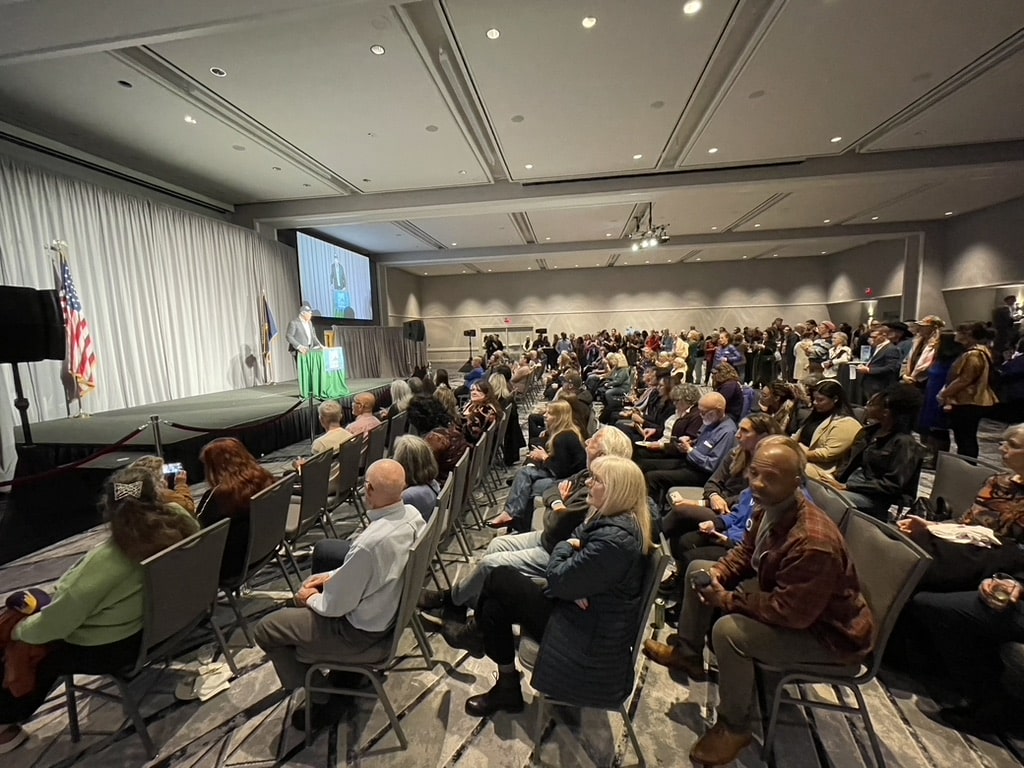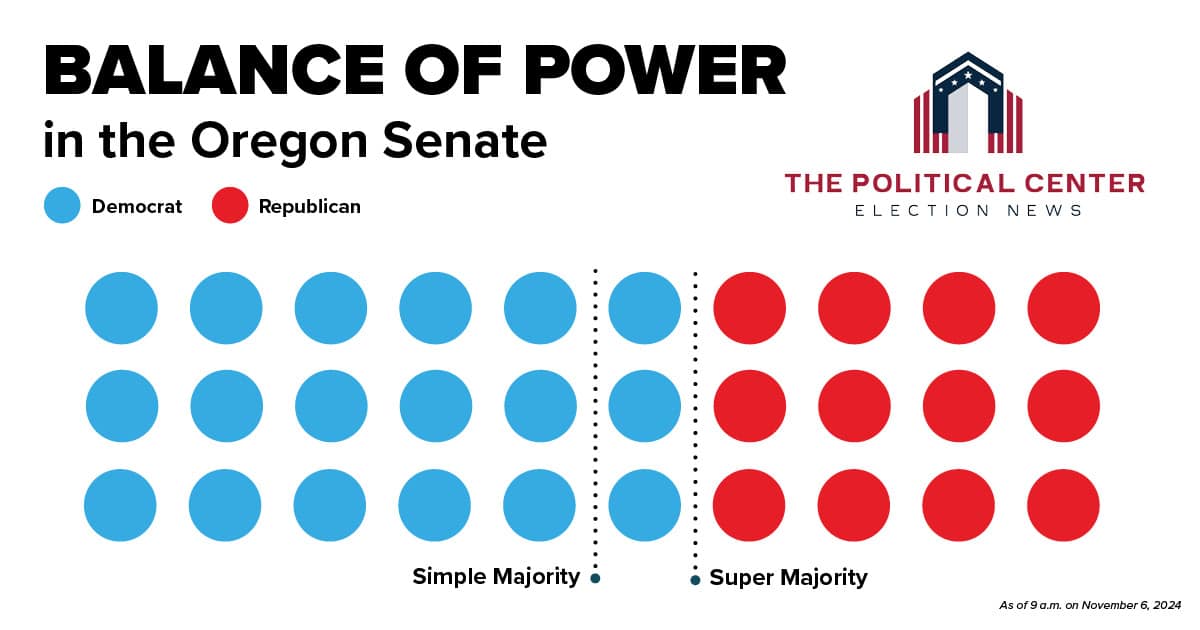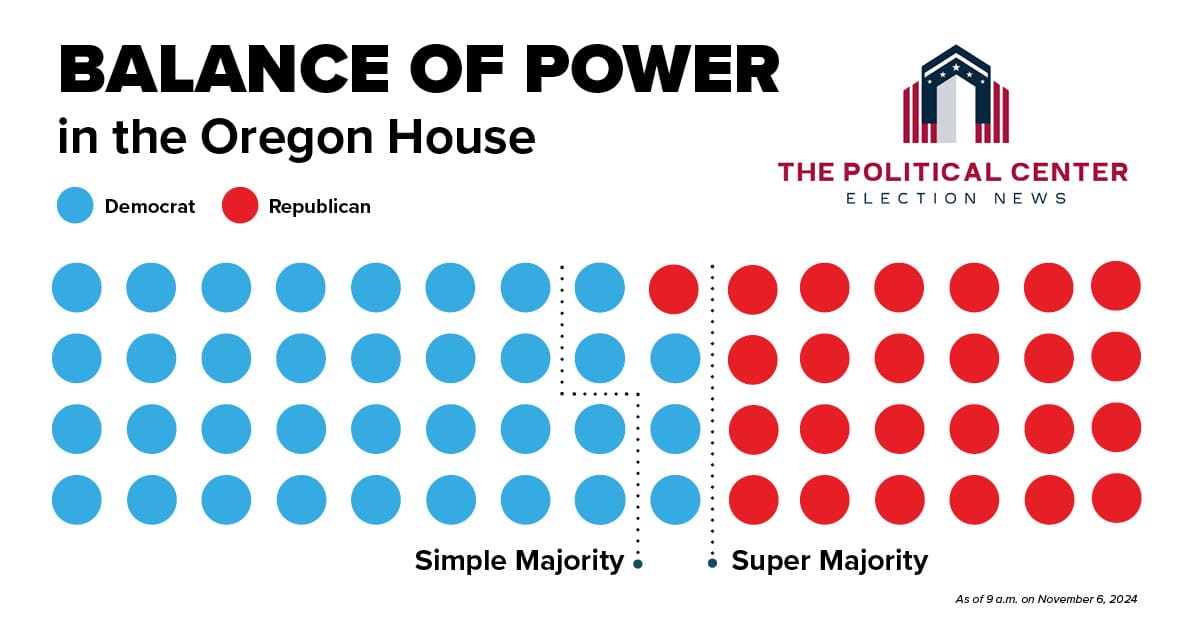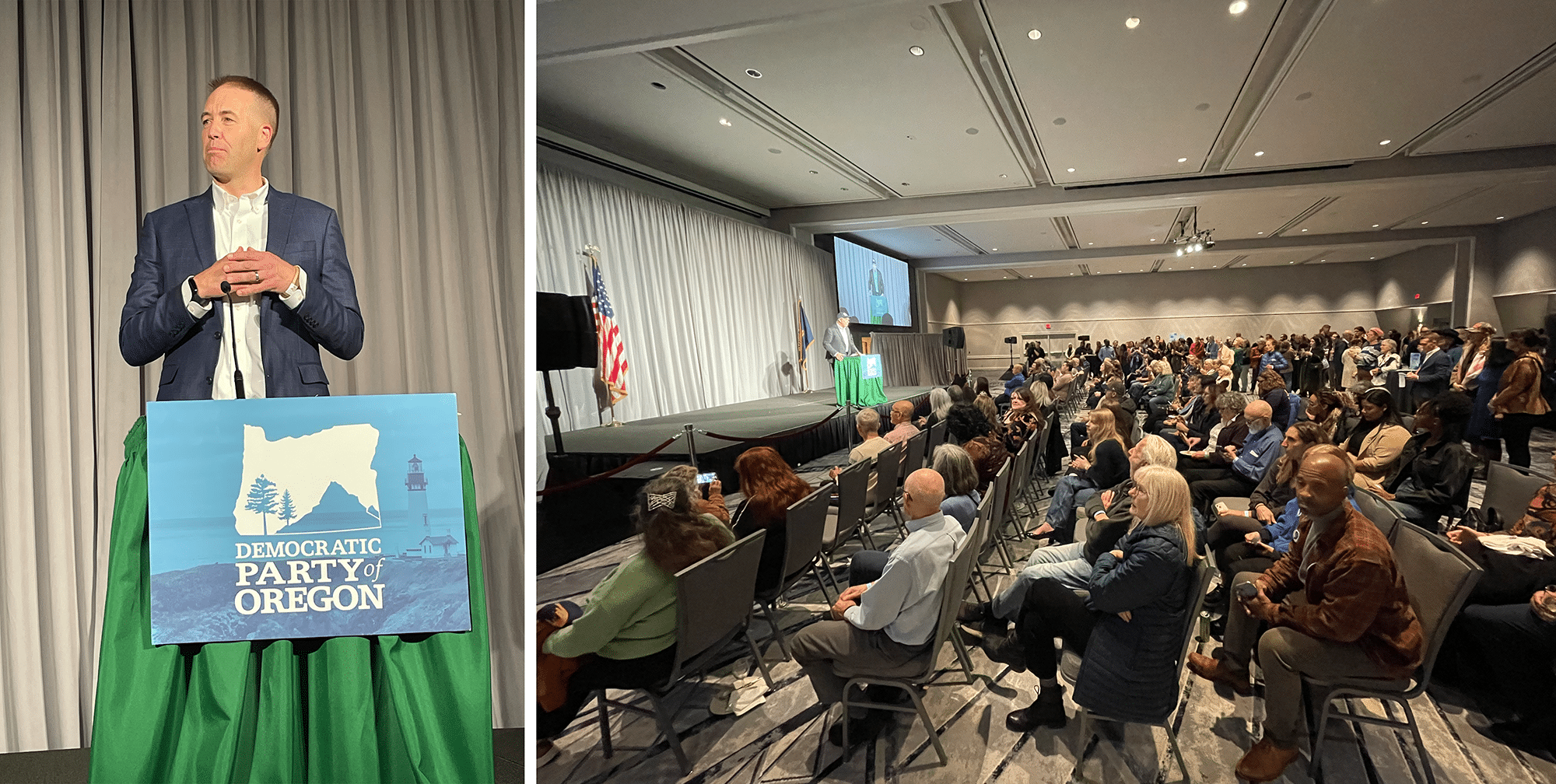Election 2024 Analysis: Red Wave Doesn’t Quite Reach Oregon
Republicans Stave Off Legislative Supermajority, But Lose Congressional Seat
As the preliminary election results continue to trickle in this morning, we are seeing few noteworthy shifts in Oregon’s political landscape. But what is clear is that Oregon voters have bucked the national trend favoring Republicans.
While voters nationally delivered the U.S. Senate, Congress, and White House to Republicans, Oregon’s incumbent Republican Congresswoman Lori Chavez-DeRemer lost her re-election bid to her Democratic challenger, current State Rep. Janelle Bynum. This is the third time these two have faced each other in election battles, and Bynum is now 3-0. The two previous matchups were for the state legislative seat that Janelle Bynum currently holds.
In the State Senate, after 62 years in Republican control, District 27 voters in Central Oregon elected Democrat Anthony Broadman with a commanding 20-point margin. Broadman will replace Senate Republican Leader Tim Knopp, who was blocked from seeking re-election after leading the longest Republican walkout in state history during the 2023 Legislative Session. This signals more than just a shift in regional representation, because this seat delivers Democrats supermajority control in the Senate once again.
The one silver lining for Republicans came in the Oregon House, where Democratic efforts to unseat House Republican Leader Jeff Helfrich appear to have fallen short. Helfrich, who was down in the initial returns on of election night, currently holds a narrow but increasing lead of approximately 250 votes. If it sticks through the final ballot count, this outcome tempers the anticipated Democratic gains and maintains a key foothold for Republicans.
The implications of these results are particularly relevant as we look toward the 2025 Legislative Session. The Democrats’ new supermajority in the Senate theoretically empowers them to advance tax-increasing legislation without even a single Republican vote. However, since the Oregon Constitution mandates that tax bills originate in the House, where Democrats fell one seat short from supermajority control, any attempts to push through significant tax legislation could face substantial hurdles. This balance of power could shape key policy discussions on topics such as transportation funding and healthcare provider taxes, both of which are slated for debate and potential passage or renewal.
The dynamics in the House are likely to keep these discussions firmly grounded in bipartisan negotiation, potentially preventing the kind of divisive actions that have led to recent series of legislative walkouts.
Other Key Takeaways from Election Night:
- Rank choice voting debuted in Portland, elevating newcomer candidate Keith Wilson to Portland Mayor. Meanwhile, Oregon voted down Measure 117 which would have allowed ranked-choice voting more broadly.
- Measure 118, the corporate tax on sales, fell in a devastating 4 to 1 defeat statewide. All 36 counties resoundingly voted against measure.
- Oregon voters passed Measure 115, giving the Oregon Legislature the power to impeach statewide elected officials. Oregon is the only state without a formal impeachment process.
- Clackamas County Chair Tootie Smith lost her re-election to former Sheriff Craig Roberts. Fellow incumbent commissioner Mark Shull is also on the path to defeat against Melissa Fireside.
Oregon Voters Wary of New Taxes
Along with a slate of candidates and statewide measures to choose from, many Oregon voters decided on local ballot measures and levies that would set policy and fund local agencies. In all there were 107 local measures, and 62 were successful.
Overall, Oregon voters were not supportive of measures that implemented taxes or levies. Most education bonds and levies failed, and those that passed were generally tied to public safety.
Every municipality except one is on pace to ban psilocybin. The outlier is the City of Nehalem in Tillamook County where the ban is currently failing by three votes. Oregon voters statewide approved a path for psilocybin sales in 2020, but many counties and cities have independently banned the sale of the drug since then.
Amendments to charters were split by region. The Metro, Mid-Valley, Gorge, and Columbia voters are more open to changes to charters and government. The same counties that voted against ballot measures that amended the constitutions tended to also vote against major charter changes as well. They tended to be the most conservative counties of the state.
Coos and Curry county voters both passed largely symbolic local measures to oppose offshore wind development. It doesn’t force any government action, but sends a message of local opposition to development.
Oregon Democrats Cheer Wins, Watch Tight Races Closely
Taking the podium Tuesday at the Democratic Party of Oregon’s Election Night Party, U.S. Sen. Ron Wyden drew enthusiastic cheers from the crowd.
Ever the basketball fan, Wyden vowed that Oregon Democrats would always put on a “full-court press” for justice and equality. Wyden was one of numerous party leaders who spoke during the event, part-social mixer and part-pep rally, with hundreds in attendance paying close attention to key statewide races.
Early results indicated it would be a solid night for Oregon Democrats, with Tobias Read leading in the race for Secretary of State by more than 10 percentage points; Dan Rayfield leading in the race for Attorney General by more than 6 points; and Elizabeth Steiner leading in the race State Treasurer by about 5 points. All three were on track to win their respective races Wednesday morning.
Outside the main ballroom, groups huddled around several televisions tuned to cable news channels to watch the latest updates in the Presidential Election. Several speakers including U.S. Sen. Jeff Merkley and DPO Chair Rosa Colquitt tried to fire up the crowd by saying they looked forward to addressing “Madam President” in the Oval Office, referring to Vice President Kamala Harris — even as former President Donald Trump held an early lead he would never relinquish.
Each speaker also took time to thank party officials and volunteers from around the state for spending months working on campaigns.
Read, who was running for Secretary of State after serving as State Treasurer since 2017, praised voters for participating in our democracy, regardless of who they voted for. He cautioned there will be “a lot of noise in the days to come,” and preached patience while all votes are being counted.
“Oregon continues to lead the way when it comes to safe and secure voting,” Read said. “But we cannot take that for granted.”







